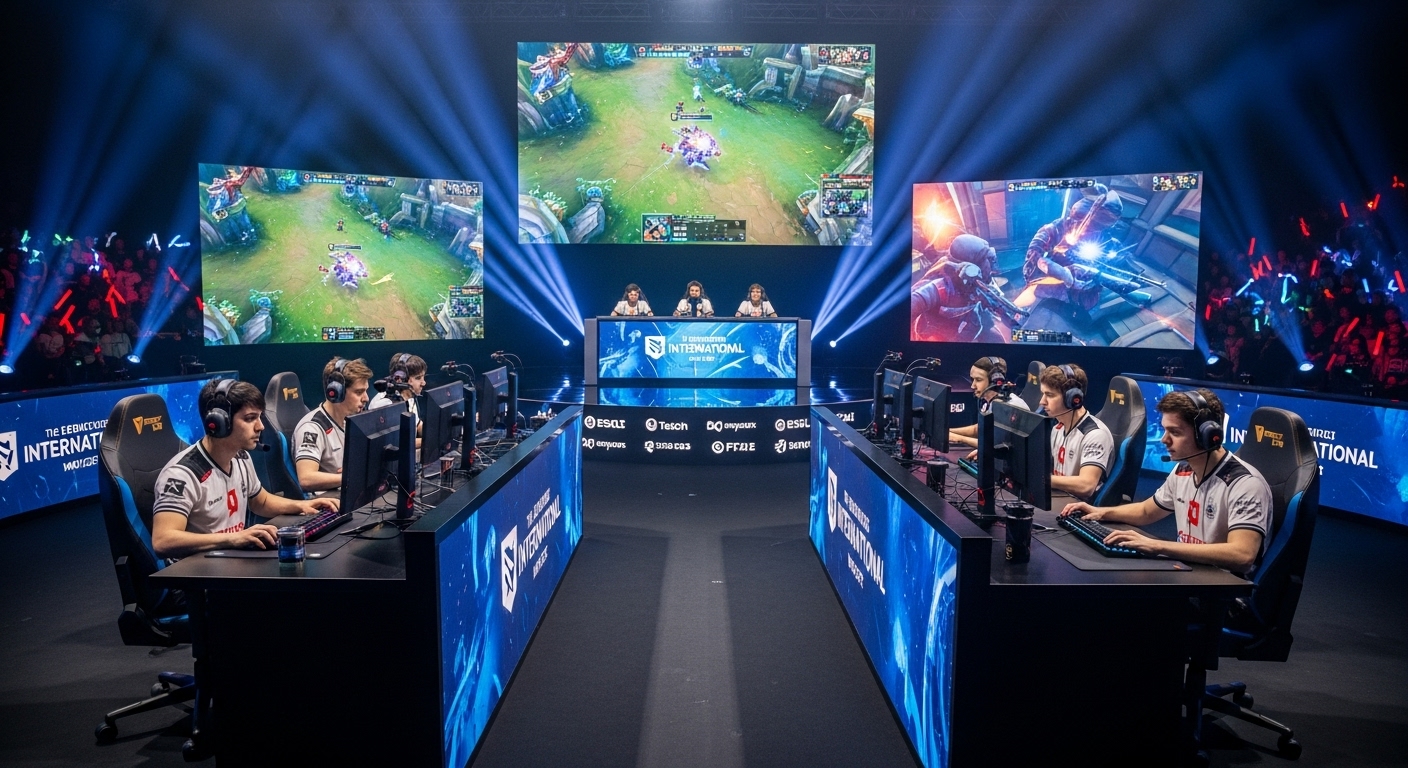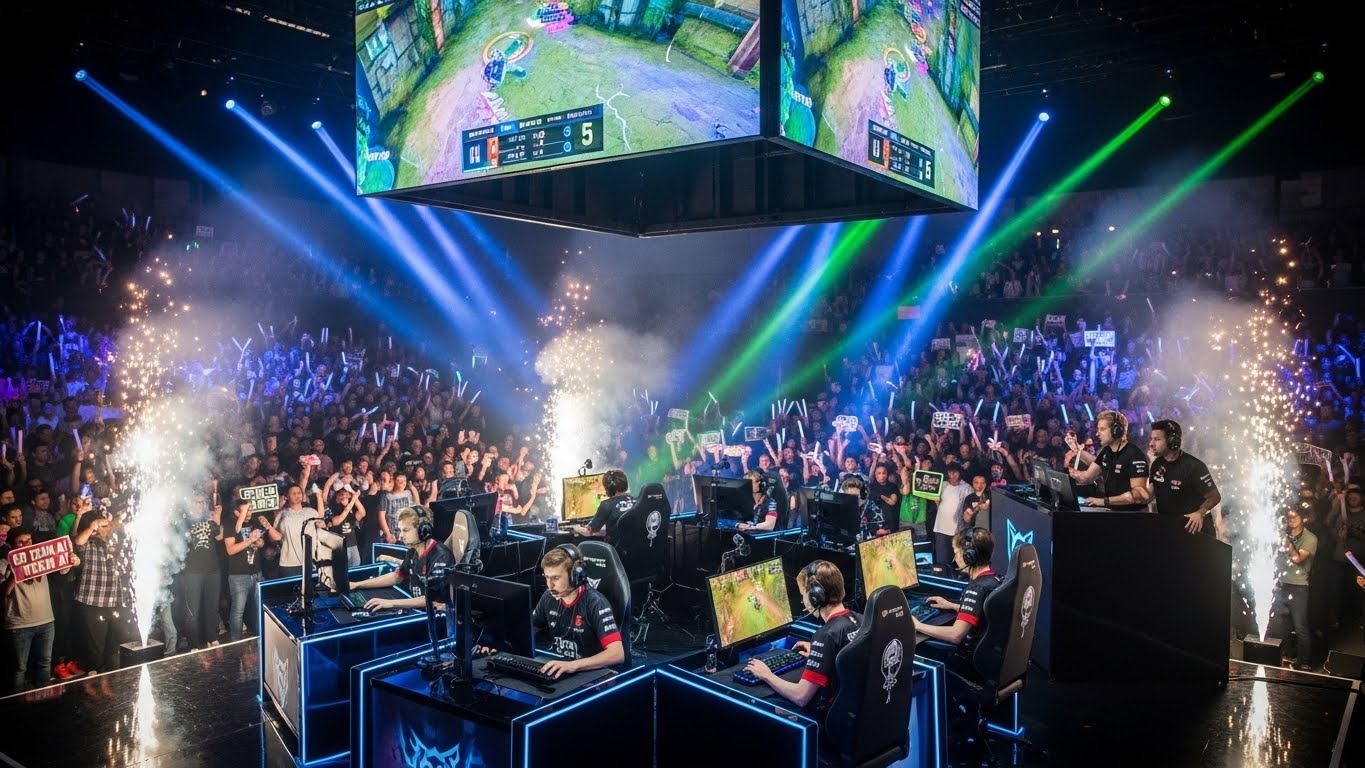In the age of digital entertainment, streaming personalities have become some of the most influential figures in the world. From Twitch and YouTube Gaming to TikTok Live and Kick, millions of viewers tune in daily to watch their favorite streamers play games, share opinions, and simply live their lives in real time. These creators have redefined the entertainment landscape, becoming more than just online entertainers — they are role models, cultural icons, and even business leaders. Their ability to shape fan behavior, opinions, and even consumer trends is remarkable. This blog explores how streaming personalities influence fans, the psychology behind this connection, and the profound effects they have on modern audiences.
The Rise of Streaming Personalities
Before understanding their influence, it’s important to recognize how streaming personalities rose to prominence. Platforms like Twitch, YouTube, and Facebook Gaming have given everyday individuals the tools to broadcast their passions directly to global audiences. Unlike traditional celebrities who rely on media gatekeepers, streamers build their fame through authenticity and interaction.
Streaming began as a niche hobby for gamers but quickly evolved into a global phenomenon. Personalities such as Ninja, Pokimane, Shroud, and xQc have turned their streams into careers, drawing millions of followers. Today, streamers cover everything from gaming and technology to music, art, and just chatting with viewers. The accessibility of live streaming has created a direct line between creator and audience — a level of connection traditional media could never achieve.
This new form of entertainment thrives on relatability. Viewers don’t just watch their favorite streamers; they feel like they know them personally. This intimacy forms the foundation of the powerful influence that streaming personalities wield over their fans.
Authenticity and Relatability: The Core of Influence
One of the primary reasons streaming personalities influence their fans so deeply is their authenticity. Unlike actors or traditional influencers who often appear scripted or distant, streamers interact with their audiences in real time. They laugh, fail, celebrate, and even show vulnerability live on camera. This rawness creates a sense of honesty that fans find endearing.
Viewers often develop what psychologists call parasocial relationships — one-sided emotional bonds where the fan feels connected to the streamer even though the relationship is not mutual. This phenomenon isn’t new; it existed with television and movie stars. However, live streaming intensifies it because fans can chat, donate, and receive direct responses.
When streamers share personal stories or struggles, they humanize themselves. A viewer who sees a streamer dealing with anxiety, celebrating milestones, or handling defeat might feel inspired or comforted. That emotional authenticity makes fans trust and support streamers in ways that extend beyond entertainment.
Influence Through Community Building
Every successful streaming personality builds a community — a group of people united by shared interests, humor, or admiration for the streamer. These communities often become digital families where fans connect, share ideas, and find belonging.
Streamers use chat interactions, Discord servers, and social media platforms to stay connected with their audience even after broadcasts end. These interactions turn fans into loyal supporters who feel personally invested in the streamer’s success.
Community influence can be profound. A streamer’s values, tone, and behavior often set the cultural tone for their community. If a streamer promotes kindness, inclusivity, and respect, their community often mirrors those values. On the other hand, toxic or aggressive behavior from streamers can breed similar negativity among fans. Thus, the streamer’s personality and leadership shape how their followers behave online and even offline.
Emotional Connection and Parasocial Bonds
The emotional bond between streamers and fans is central to understanding their influence. Many fans spend hours daily watching their favorite creators, forming attachments similar to real friendships. These parasocial relationships fulfill emotional needs — such as companionship, validation, and entertainment — especially for people who might feel isolated in their daily lives.
When streamers express gratitude, acknowledge chat messages, or remember recurring fans, they strengthen this emotional bond. Small gestures like reading a fan’s name aloud can make the viewer feel seen and valued. This interaction deepens loyalty and can lead to strong behavioral influence, such as supporting the streamer financially, defending them online, or even adopting their viewpoints.
However, this connection also carries responsibility. Some fans struggle to separate reality from the parasocial relationship, expecting personal attention or emotional reciprocity. Responsible streamers maintain healthy boundaries while still fostering genuine connections with their fans.
Streamers as Trendsetters and Cultural Icons
Streaming personalities don’t just entertain; they set trends. Their choices in games, fashion, technology, and even lifestyle can instantly influence thousands or millions of fans. When a popular streamer starts playing a new game, it often surges in popularity overnight. For example, titles like Among Us and Valorant gained massive traction partly due to streamer exposure.
Similarly, streamers shape broader pop culture — from memes and slang to fashion and music. Their catchphrases, reactions, and even mannerisms often become viral. Fans mimic their idols, adopting similar speech patterns, playstyles, or online habits.
Brands have recognized this immense influence, collaborating with streamers for marketing campaigns. A single sponsored stream can generate more engagement than traditional advertisements. Fans tend to trust streamers’ recommendations because they perceive them as genuine individuals rather than faceless advertisers.
Influence on Fan Behavior and Attitudes
Streaming personalities can influence how fans think, act, and communicate. This influence extends beyond what products they buy or what games they play — it can shape personal attitudes, mental health awareness, and social behavior.
When streamers discuss topics like mental well-being, inclusivity, or social issues, their words carry weight. Fans often look up to streamers as role models, adopting their perspectives or values. For example, a streamer who emphasizes respect in gaming can inspire fans to behave more positively online. Conversely, a streamer who normalizes toxicity or bullying may contribute to harmful behavior among viewers.
The emotional resonance of live streaming amplifies this effect. Unlike edited content, the real-time nature of streaming makes moments of kindness, anger, or empathy more impactful. Fans witness these emotions as they unfold, leaving lasting impressions that shape their worldview.
Economic and Consumer Influence
Streaming personalities are major drivers of digital and gaming economies. Their recommendations directly impact sales of products, games, and services. Fans are often eager to purchase the same gear, peripherals, or merchandise used by their favorite creators.
Many streamers launch their own product lines, clothing brands, or partnerships, turning their personal brands into thriving businesses. The “support your streamer” mentality encourages fans to buy merchandise, subscribe, or donate — not just as consumers, but as participants in their favorite streamer’s success story.
Beyond direct sales, streamers influence viewing habits, gaming trends, and even event attendance. For instance, when a popular personality announces participation in a gaming event or tournament, ticket sales and online viewership often spike dramatically.
The Role of Social Responsibility
As their influence grows, streaming personalities also face ethical responsibilities. Their behavior, words, and choices can affect millions of people. Many streamers have embraced this role by advocating for positive causes, charity events, and mental health awareness campaigns.
Platforms frequently host charity streams where creators raise money for global causes. These events not only generate significant funds but also inspire fans to contribute and become more socially aware. Streamers who demonstrate compassion and integrity often build stronger, more enduring communities.
However, there have also been cases where irresponsible behavior — such as spreading misinformation or engaging in public controversies — has harmed both streamers and their communities. This highlights the importance of accountability and the impact public figures have on impressionable audiences.
The Power of Interaction and Engagement
Unlike pre-recorded content, streaming thrives on interactivity. Fans can chat, donate, and even influence the content of the stream in real time. This two-way communication strengthens engagement and fosters a sense of shared experience.
Interactive features like polls, live challenges, and viewer requests make fans feel involved in the streamer’s journey. Some streamers allow subscribers to play games with them, creating memorable moments of direct participation. This engagement transforms fans from passive viewers into active community members, deepening their loyalty and emotional investment.
The result is a symbiotic relationship: fans feel appreciated, while streamers gain dedicated support and ongoing growth. This continuous engagement is a key factor behind the enduring success of streaming personalities.
Influence Beyond the Screen
The influence of streaming personalities extends into fans’ real lives. Many viewers find motivation, friendship, and personal growth through their favorite creators. A streamer who shares stories about overcoming challenges can inspire fans to pursue their own goals. Others create safe spaces for people to discuss topics like anxiety, confidence, or creativity.
Streamers also foster real-world communities through fan meetups, conventions, and events. These gatherings strengthen the bond between creator and audience, transforming digital relationships into tangible human connections. For many fans, meeting their favorite streamer in person is a meaningful, emotional experience that reinforces their admiration and loyalty.
Challenges of Influence and Fan Expectations
While the influence of streaming personalities can be positive, it also brings challenges. Fans often develop high expectations for constant availability or perfection, forgetting that streamers are real people with emotions and limitations. The pressure to maintain authenticity, engagement, and performance can lead to burnout.
Additionally, the power imbalance inherent in parasocial relationships can lead to misunderstandings or boundary violations. Responsible streamers communicate clearly with fans, setting healthy limits while maintaining transparency and kindness.
Communities, too, must manage toxicity. When streamers face criticism or controversy, fan reactions can become defensive or aggressive. Building mature and respectful communities requires both streamer leadership and collective accountability among fans.
The Future of Streamer Influence
As live streaming technology continues to evolve, the influence of streaming personalities will only deepen. The rise of virtual reality, AI companions, and interactive metaverse platforms will create even more immersive relationships between creators and fans.
Streamers are also becoming mainstream celebrities, appearing in advertisements, documentaries, and even traditional sports broadcasts. This merging of digital and mainstream culture signifies a future where the line between “online personality” and “public figure” no longer exists.
In this future, the most successful streamers will be those who balance entertainment with empathy — those who understand that their influence carries both power and responsibility.
Conclusion
Streaming personalities have transformed modern entertainment by blending authenticity, interactivity, and emotional connection. They influence fans not only through the games they play or the products they promote but through the communities they build and the values they represent.
Their power lies in relatability — in showing that success, struggle, laughter, and vulnerability can coexist on the same screen. Fans, in turn, reflect the energy and attitude their favorite streamers project. Whether through humor, compassion, or creativity, streaming personalities shape digital culture and inspire millions to connect, create, and dream.
As technology advances and communities grow, one thing remains clear: the relationship between streamers and fans is more than entertainment — it’s a new form of shared humanity in the digital age.




